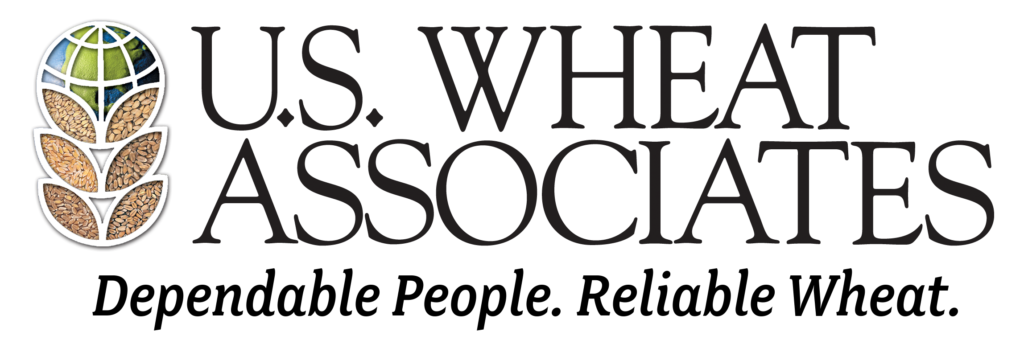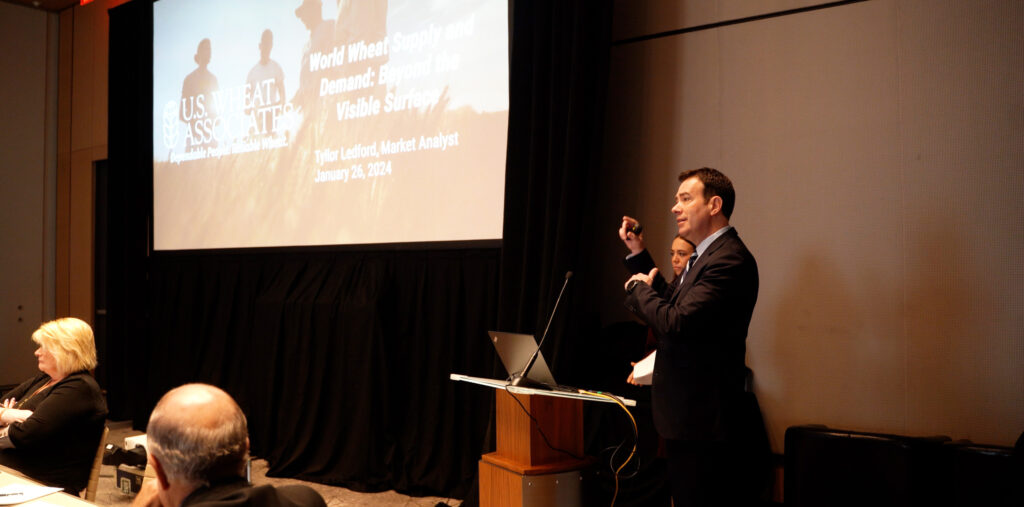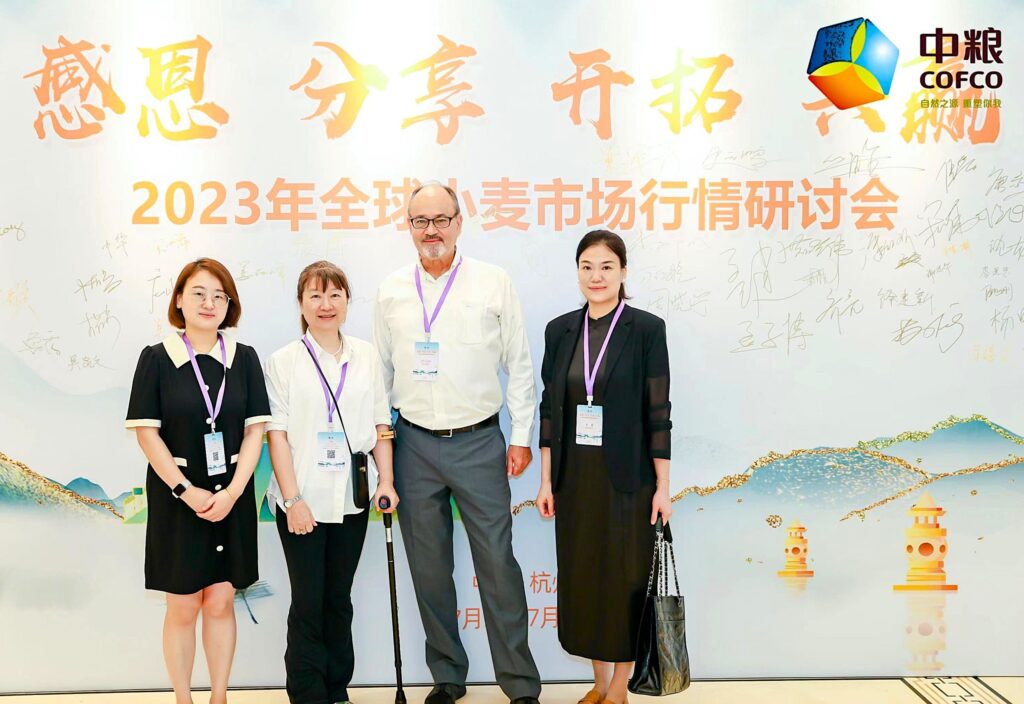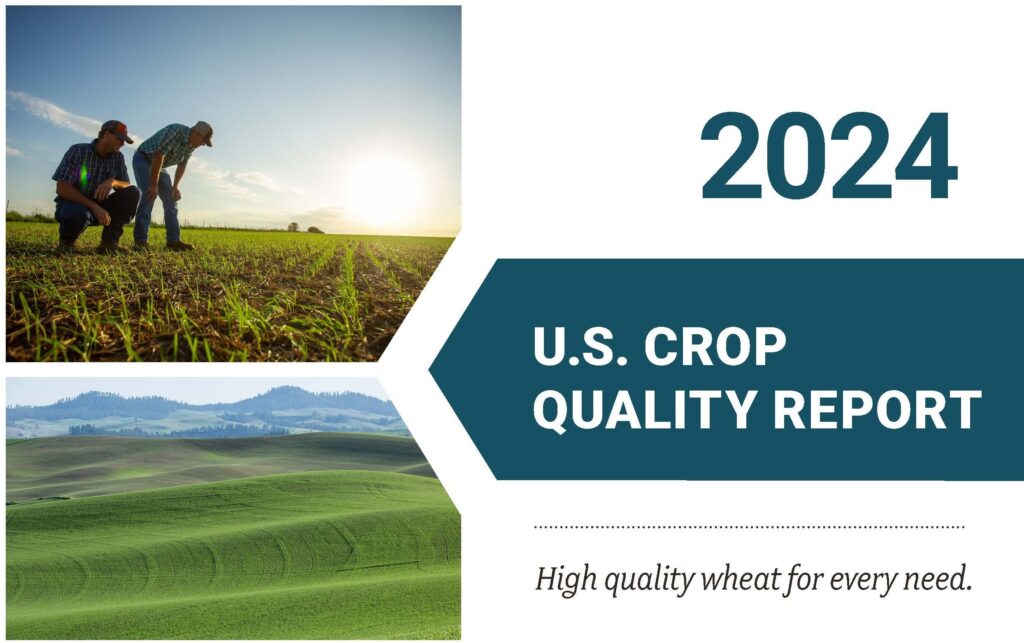USW and NAWG Welcome Confirmation of Jamieson Greer as U.S. Trade Representative

U.S. Wheat Associates (USW) and the National Association of Wheat Growers (NAWG) welcome the U.S. Senate’s confirmation of Jamieson Greer to fill the position of U.S. Trade Representative. Both organizations are pleased with Greer’s past work in the Office of the U.S. Trade Representative. As chief of staff for former U.S. Trade Representative Robert Lighthizer, […]
USW and NAWG Support USDA Administration of Food for Peace

U.S. Wheat Associates (USW) and the National Association of Wheat Growers (NAWG) welcome new legislation introduced today that would move the Food for Peace international food assistance program under USDA’s administration. The legislation is sponsored by Representatives Tracey Mann of Kansas, Rick Crawford of Arkansas, Dan Newhouse of Washington, David Rouzer of North Carolina and […]
U.S. Wheat Associates Board Elects New Officers for 2025/26 Term

WASHINGTON, D.C. — The U.S. Wheat Associates (USW) board of directors elected new officers for the organization’s 2025/26 fiscal year (July to June) at their meeting January 15, 2025, in Washington, D.C. Mike Carstensen of Almira, Wash., was newly elected as the organization’s next Secretary-Treasurer and will take office July in 2025. At the July […]
U.S. Wheat Organization Statement on USTR Pick

Following is a statement from U.S. Wheat Associates (USW) and National Association of Wheat Growers: “Trade deals with Japan and Mexico won by the previous Trump Administration protected crucial U.S. wheat export markets. U.S. Wheat Associates and the National Association of Wheat Growers strongly support an Office of the U.S. Trade Representative actively focused on enforcement […]
NAWG and USW Congratulate Brooke Rollins on Secretary of Agriculture Nomination

ARLINGTON, Virginia — The National Association of Wheat Growers (NAWG) and U.S. Wheat Associates (USW) released the following statements in response to President-elect Donald Trump’s nomination of Brooke Rollins to serve as Secretary of the U.S. Department of Agriculture. “Congratulations to Brooke Rollins on her nomination to serve as our next Secretary of Agriculture. NAWG […]
Farmer Directors Elect Mike Spier as Next President and CEO of U.S. Wheat Associates

At their board meeting Nov. 14, 2024, U.S. Wheat Associates (USW) directors elected Mike Spier, Vice President of Overseas Operations, as the export market organization’s next President and CEO, effective with the retirement of current President and CEO Vince Peterson on July 1, 2025. “I am deeply honored and humbled to be elected to this […]
U.S. Wheat Associates Promotes Shirley Lu to Managing Director, China

HONG KONG — U.S. Wheat Associates (USW) promotes Shirley Lu from Country Director to Managing Director, China, effective January 1, 2025, following the retirement of Regional Vice President Jeff Coey on December 31, 2024. She will be responsible for planning and implementing public affairs, trade and technical service programs, and managing USW’s regional staff in […]
High Quality Wheat for Every Need Detailed in 2024 U.S. Crop Quality Report

As a key part of its commitment to transparency and trade service, U.S. Wheat Associates (USW) has produced the 2024 U.S. Crop Quality Report that includes grade, flour, dough, and baking data for five of six U.S. wheat classes. The report provides essential, objective information to help buyers get the wheat they need at the […]
Broadcast Version – U.S. Wheat Associates Statement on USDA Deregulation of HB4 Drought-Tolerant Trait in Wheat

ANNOUNCER: The U.S. Department of Agriculture announced it will deregulate the HB4 drought tolerant trade in wheat. Farmer leaders of U.S. Wheat Associates commended USDA’s thorough, science-based process and expressed confidence in the trait’s potential to deliver significant benefits for both producers and consumers. Oklahoma wheat grower and U.S. Wheat Associates past chairman Michael Peters […]
U.S. Wheat Associates West Coast Office Moves to Portland’s World Trade Center

PORTLAND, Oregon — As of Aug. 1, 2024, the West Coast Office of U.S. Wheat Associates (USW) will be located at the World Trade Center, Suite 1125, 121 SW Salmon Street, Portland, OR 97204. USW is the export market development organization for the U.S. wheat industry. Five full-time employees in the West Coast Office provide […]

